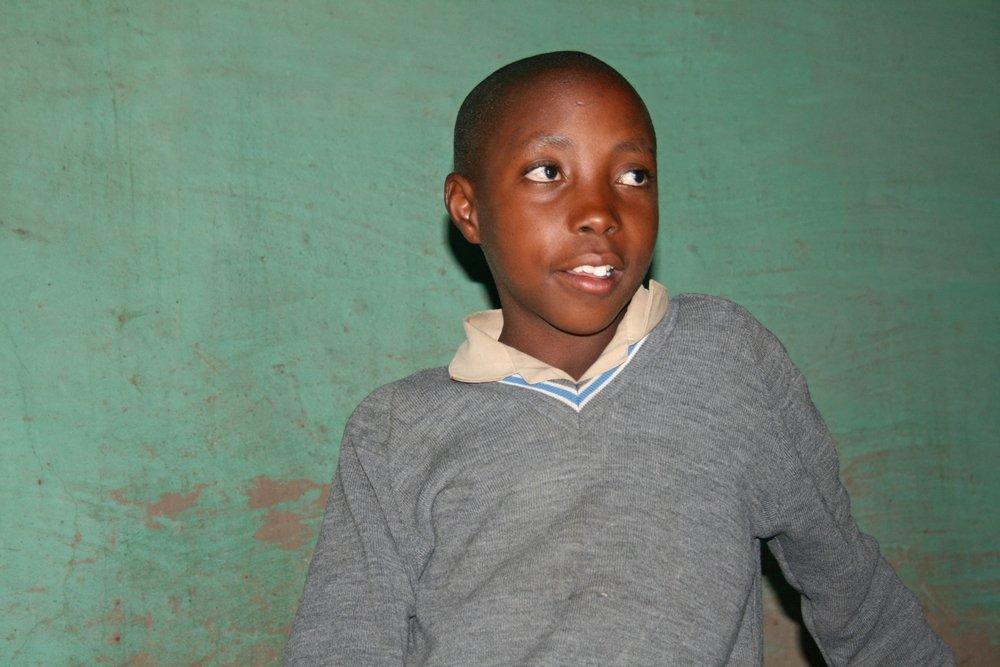At 13 years old Tsepang Robis, from the Mofoka village in rural Lesotho, is HIV positive and has successfully finished her six month treatment for tuberculosis (TB), thanks to her doting grandfather. But with each day she lives positively, his days with her grow fewer...
At the age of 82, Solo Robis has seen the ebb and flow of life and death in the small village of Mofoka in rural Lesotho. But a worry still weighs on him: How can he ensure HIV/AIDS and TB does not become a death sentence for his bright young granddaughter Tsepang, like it has for so many other villagers?
Tsepang was diagnosed HIV positive two years ago. She has just overcome a tough battle with TB after six months on treatment in a country where HIV/AIDS related complications, like TB, claim 18, 000 lives each year.
In Lesotho, funeral home and burial service signs dot the roadside – a reminder of the massive toll HIV/AIDS and TB have exacted during the last two decades. Solo knows this all too well: “It is really bad. It was even worse in the past decade because people are dying at a very young age,” says Solo. “There were at least two funerals per week, and all around deaths in the family became commonplace - like my wife and like Tsepang’s mother.”
Solo has been Tsepang’s guardian since her parents separated and her mother died of HIV/AIDS in 2006. He took Tsepang, then aged 9, to the nearest MSF-supported Mofoka clinic because she was getting sick regularly – she was suffering from chronic diarrhoea, skin rashes, vomiting, and high fever and severe coughs. MSF’s Selibeng sa Tšepo (meaning “Wellspring of Hope”) project, which aims at increasing access to integrated HIV and TB care was already running then, so Tsepang could be initiated on antiretroviral therapy at the clinic close to where she lives.
Ever since Tsepang tested HIV positive, Solo has been looking after her carefully, taking her to the clinic for medical follow-ups, child support sessions, and ensuring that she takes her anti-retroviral (ARV) medication. But he knows he will not be able to look after her forever: “I will always take care of Tsepang and make sure that she is well, for as long as I live. But what will happen to Tsepang when I am gone? I am old, and the time will come that she will be left alone in the world. That is worrying. I always ask myself what will happen with her. She is still very young...”
Hunched over a piece of coloured paper, pencil in hand, Tsepang is lost in her own world as she draws during a child support session at the Mofoka clinic. Sessions like these have made a difference to how children living with HIV see themselves. Here Tsepang is able to draw, sing, dance, and laugh with other children who share her HIV positive status.
MSF nurse Patricia Nyoni describes how the MSF counselling group for child patients evolved: “We started these support sessions for children in 2008. That is when we started seeing an increasing number of children who were testing positive for HIV and/or TB.”
Here Tsepang and her friends sing local children’s songs as they laugh, dance and play, under the guidance of nurses and counsellors. The support sessions for children are also an opportunity for parents and guardians to learn how to help their children.
At school Tsepang is a bright and promising grade five pupil, with a talent for drawing and English. “My favourite subject is Math. I want to become a nurse someday, so I will study hard,” Tsepang says. “I want to be like Nurse Makaloba Ntabelala at the Mofoka clinic, because she helps the children a lot.”
